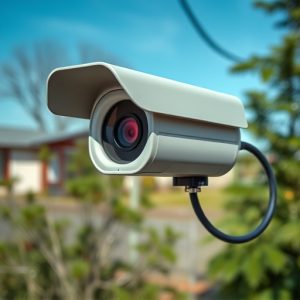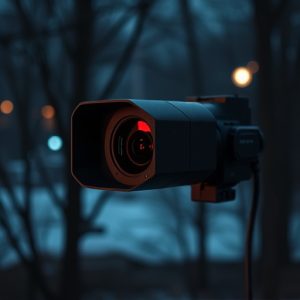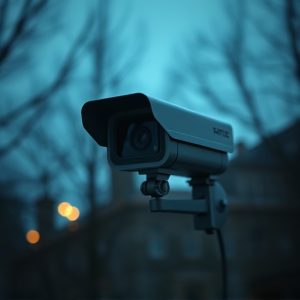Unveiling Hidden Cameras: State Laws, Common Spots, & Prevention
Hidden cameras in US states have varying legalities, with strict regulations in some areas like Cali…….
Hidden cameras in US states have varying legalities, with strict regulations in some areas like California, while others allow them under specific conditions. Understanding and adhering to Hidden Camera Laws by State is vital to avoid fines and lawsuits, respecting privacy rights, and protecting against illegal monitoring. Regularly inspect spaces for unusual devices, stay informed about laws, and install security cameras to safeguard personal privacy.
Uncover the hidden corners where surveillance devices may be lurking with our comprehensive guide. In an era where privacy is a precious commodity, understanding the legal landscape surrounding hidden cameras becomes crucial. We explore ‘Hidden Camera Laws by State’, shedding light on what’s permitted and what’s not. From common spots like public spaces to private residences, no stone is left unturned. Learn about the potential legal implications of using hidden cameras and equip yourself with methods to detect and prevent these devices, ensuring your safety in an increasingly vigilant world.
- Understanding Hidden Camera Laws by State
- Common Spots for Hidden Surveillance Devices
- Legal Implications of Using Hidden Cameras
- Detecting and Identifying Hidden Cameras
- Preventive Measures Against Hidden Surveillance Devices
Understanding Hidden Camera Laws by State
Understanding Hidden Camera Laws by State is crucial before discussing hidden surveillance device locations. Each state in the US has its own set of laws regarding hidden cameras, with varying degrees of protection for privacy rights. Some states have stringent regulations that require explicit consent from all parties involved, while others have more lenient rules. For instance, California has some of the most comprehensive privacy laws, making it illegal to install a hidden camera without written permission from all occupants. In contrast, certain states allow hidden cameras with limited restrictions, often for security purposes like business surveillance or home protection.
Knowing these Hidden Camera Laws by State is essential to ensure legal and ethical usage. Violating these laws can lead to severe legal consequences, including fines and potential civil lawsuits. Always check the specific regulations in your state before setting up any hidden surveillance devices to avoid legal pitfalls and respect individual privacy rights.
Common Spots for Hidden Surveillance Devices
Hidden surveillance devices can be found in unexpected places, as technology advances and becomes more accessible, making it easier for individuals to engage in covert monitoring. While some might use these devices for legitimate security or surveillance purposes, others employ them for illegal activities, violating privacy rights. Understanding common spots where such devices may be hidden is essential, especially when considering the varying Hidden Camera Laws by State.
For instance, cameras can be discreetly installed in everyday objects like smoke detectors, light fixtures, or even fake fire alarms. In residential settings, they might be placed behind mirrors or inside dummy security cameras. Public spaces often host surveillance devices disguised as streetlights, bins, or other infrastructure. Knowing these potential locations can help individuals stay vigilant and protect their privacy.
Legal Implications of Using Hidden Cameras
The legal implications of using hidden surveillance devices vary significantly across different states in the US, as each state has its own laws and regulations regarding privacy and surveillance. It’s crucial for individuals considering the installation of hidden cameras to understand these Hidden Camera Laws by State to ensure they are operating within legal boundaries. Non-compliance can lead to severe penalties, including fines and even imprisonment.
Many states have strict rules prohibiting the use of hidden cameras without consent, especially in areas where individuals expect privacy, such as bathrooms, bedrooms, or other enclosed spaces. Additionally, there are restrictions on the recording and storage of video footage, with some states mandating that recordings be stored securely and accessed only by authorized persons. Understanding these laws is essential to protect both personal privacy rights and to avoid legal repercussions.
Detecting and Identifying Hidden Cameras
Detecting hidden cameras requires a keen eye and knowledge of common spots they might be installed. One of the first steps is to understand local Hidden Camera Laws by State, as these regulations can provide insights into where and how surveillance devices are permitted. Many states have specific rules about consent, reasonable expectation of privacy, and the types of cameras allowed in public or private spaces.
Visual inspection is a basic yet effective method to identify potential hidden cameras. Look for any unusual objects, such as small cameras or motion-activated devices, stuck behind furniture, under baseboards, or on ceilings. LED indicators or blinking lights could be red flags, suggesting the presence of covert recording equipment. Additionally, check for any suspicious wiring or connections that might hint at a hidden camera system.
Preventive Measures Against Hidden Surveillance Devices
Protecting your privacy from hidden surveillance devices requires a proactive approach. The first step is to be aware of potential hiding spots, such as fake smoke detectors, electrical outlets, or even seemingly innocuous decorative items. Regularly inspecting your home or workplace for any unusual devices and staying informed about local Hidden Camera Laws by State can significantly deter would-be intruders.
Additionally, installing security cameras and using motion sensors can act as a strong deterrent. Keeping technology up to date with advanced detection software and regularly checking system logs for suspicious activity is also beneficial. Educating yourself on your rights and legal protections against illegal surveillance is crucial in defending your privacy.
Understanding the legal framework surrounding hidden camera laws by state is crucial for both individuals and businesses. By identifying common spots where surveillance devices might be hidden, you can better protect your privacy and security. Being aware of the potential legal implications and learning how to detect and identify these devices is essential. Ultimately, taking preventive measures against hidden surveillance devices can help ensure a safer and more secure environment for all.


